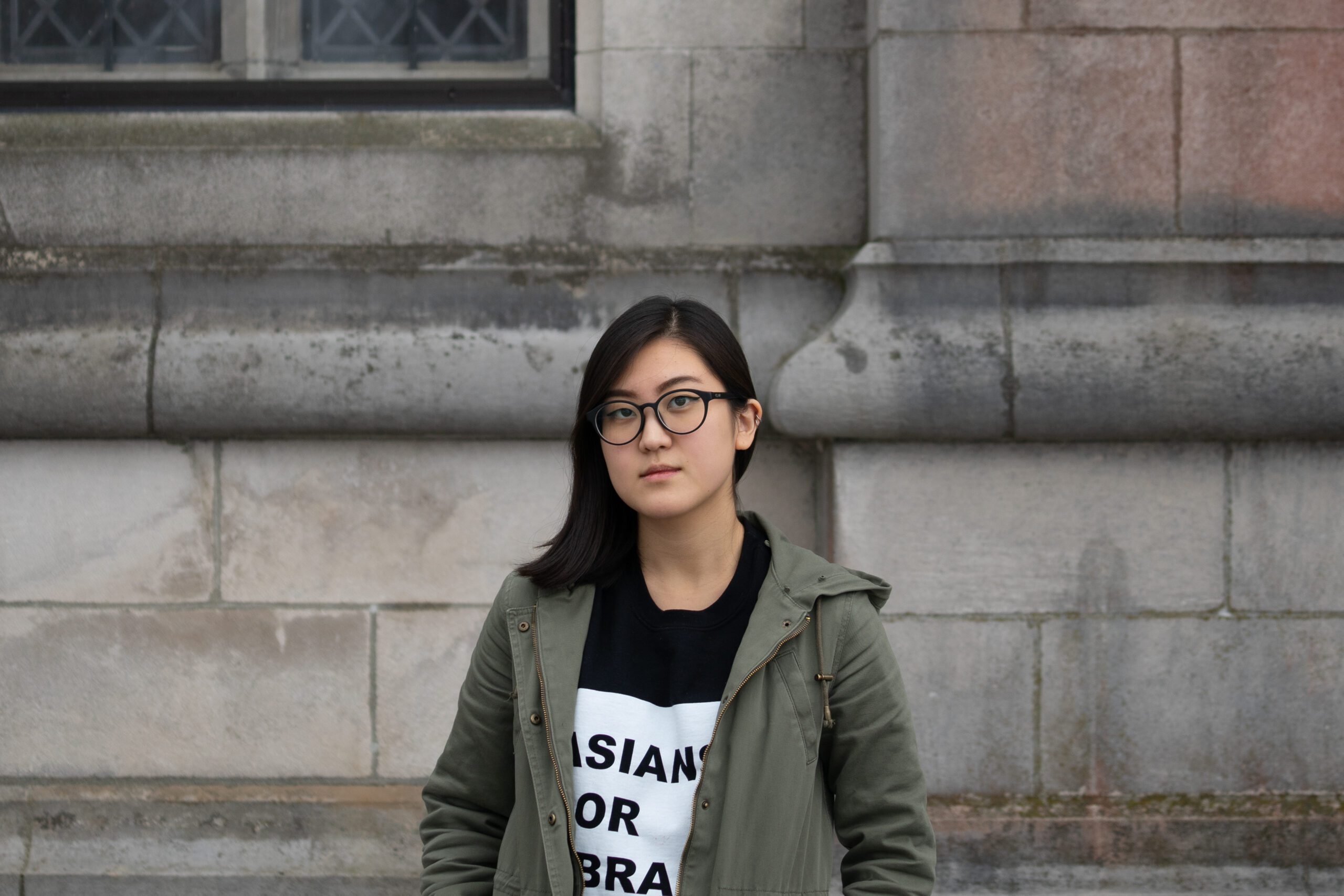Bowdoin senior challenges Georgia election
November 30, 2018
 Jack Burnett
Jack BurnettThe day after the midterm elections, Arah Kang ’19 received a call from the director of Asian Americans Advancing Justice (AAAJ), a national organization that advocates for civil and human rights for Asian Americans. Three hours later, Kang found herself boarding a flight to Atlanta, emailing professors to let them know that she would not be able to make class. The next day she would present evidence of voter fraud in three Georgia counties.
Kang’s journey to that flight began in October, when she requested an absentee ballot. After weeks of waiting and numerous unanswered inquiries to her town clerk’s office, Kang finally received her absentee ballot. The caveat? It came the day before the election. Although Kang express mailed her ballot, it did not arrive to her town clerk’s office in time to be counted.
This tardy reception was especially frustrating for Kang, as she had worked on gubernatorial candidate Stacey Abrams’ campaign. Kang first met Abrams in 2017 and was immediately impressed.
“Once you meet Stacey, you realize how warm she is, what an amazing person she is,” said Kang. “She has an amazing background, an amazing story, and her work ethic is unreal. She really works on a holistic level—she’s not exclusive.”
Over the summer, Kang worked for Asians for Abrams and continued to work until the midterm, translating ads and phone bank scripts into Korean. After months of work on the campaign, Kang wanted her vote to count.
“When [my ballot] was rejected, it was super frustrating. Imagine working so hard for a cause and then your individual vote not contributing to make a difference,” said Kang.
Kang reached out to friends from Georgia, finding that many of them had experienced similar difficulties. She began working with her friend Peggy Xu, a graduate of the University of Chicago, to keep track of these incidents. Kang reached out to her contacts on the Abrams campaign, and they charged her with documenting college students’ difficulties submitting their ballots. Kang and Xu took to Facebook, posting the following status:
“If you were one of the GA voters who had issues with your absentee ballots, SEND ME THE RECEIPTS ASAP. Send me screenshots of calling the registrar or board of elections. Or your emails showing that you contacted them. Or any proof of submission or contact after!”
The pair’s online action received over 80 shares, and they collected over 40 cases involving students who had received absentee ballots too close to their voting deadline. Some students had requested their absentee ballot as early as July, and others had requested their ballot multiple times.
“It was even more infuriating to find out that my situation was not an individual mistake but happened over 40 times,” said Kang. “And that’s not a coincidence. If your vote doesn’t matter, why would they try to suppress it?”
Because Kang gathered such a large pool of evidence, the AAAJ decided to fly her down to Atlanta to present her findings in court. Working in tandem with the Democratic Party and the Abrams Campaign, the AAAJ drove Kang to the three counties where she had found the most evidence of fraud. Kang testified in front of politicians, reporters and protestors from the Tea Party.
“They all had their own posters, pieces of paper and stuff,” said Kang. “Their signs said ‘Socialists are trying to steal your vote.’ Clearly, they hadn’t done their research.”
Over the course of the day, Kang travelled to Fulton, DeKalb and Gwinnett Counties. Gwinnett County had the highest rate of rejected absentee ballots and was also where Kang had the most evidence.
“There were definitely elderly white men who were very dismissive,” Kang said. “There was one man who called the whole absentee ballot thing a hiccup. I was like, ‘No, it’s a wakeup call.’”
At one point, Kang received a text from a Democratic Party staffer, telling her that a Republican operative was trying to upend their case. Kang noticed a young man that fit the text’s description.
“He was this tall, young dude. He looked like a surfer. He honestly looked nice,” said Kang. “But then I noticed that he was talking to all of the liberal people at the courthouse.”
Forty-five minutes later, while Kang was leaving the courthouse, her driver noticed that their car was being followed. Kang glanced back and saw the operative from the courthouse behind them.
“He was keeping an arm’s length away,” Kang said. “He pulled out when we pulled out. We were swerving around; we had to book it. It was crazy. You know when someone’s following you.”
Eventually, they lost him. As a result of Kang’s efforts and those of others who testified with similar evidence around the state, U.S. District Judge Steve Jones ruled that all Georgia counties had to count any absentee ballots that had been rejected on the grounds of missing or inconsistent birth date—one consistent disqualifying factor that Kang’s evidence showed.
“[The experience] just blew me away,” said Kang. “At this point I shouldn’t be surprised, with the political climate. But it’s like, the moment you think things couldn’t possibly get worse, here’s another surprise.”

Comments
Before submitting a comment, please review our comment policy. Some key points from the policy: